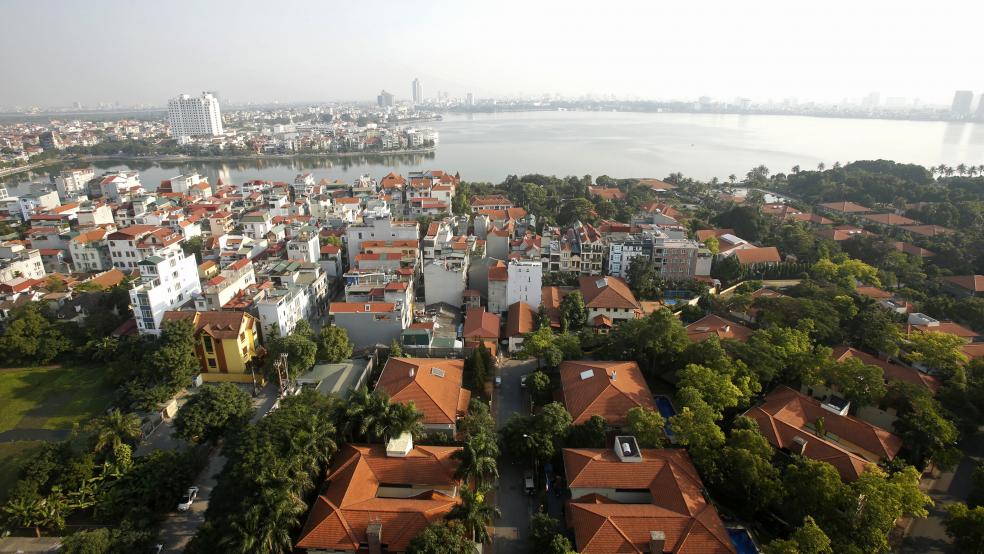Even in boom times, investing in the developing world is a risky business. In the Middle East, for example, there was no indication that the Arab world’s somnolent and seemingly permanent autocracies would be undone by the Arab Spring when a single street vendor in Tunisia setting himself on fire in 2010.
There were likewise few indications that the Yemeni government of Abd-Rabbu Mansour Hadi would collapse this week under the guns of its Houthi rebels, which seemed like an irritating but non-existential threat until about 96 hours ago.
Political uncertainty, of course, is why investments in the developing world pay a premium. But not all uncertainty is created equal. In places like South America, where countries have industrialized under the shadow of the North America, the reliable populist currents will be anti-American. The same goes for the Arab League and the same for Russia, though for different reasons.
Related: Here’s John Kerry’s Next Foreign Policy Test
Since the United States waged the Cold War alongside the imperial remnants of France and Britain, the same also goes for many of their former colonies. There is almost always a political advantage to scoring points off the Americans, and nobody is more exposed than their companies -- but not everywhere.
In certain places, for reasons of state or some quirk of their historical experience, some nations default to American friendship. Outside of all other factors, that should be the litmus test for investment in risky areas: when push comes to shove, how much does the government want to make Americans happy?
If there’s a problem – usually a combination of local security problems coupled with a limited range of options for political reform – can the deck be stacked in our favor? Three unlikely states in particular stand out:
Related: Why U.S. May Lift Its Arms Embargo Against Vietnam
1. Vietnam – It is no secret that Vietnam is experiencing an economic boom with the first flush of its modernization, like Japan in the 1970’s and China in the 1980’s. But even if it weren’t, it is the best possible developing country to invest in. Virtually alone among the continental Asian states, Vietnam has set itself against China’s drive for regional dominance. Some of the island nations have also, of course: Japan, Australia, and the other fortunate offshores who have a freedom of movement that China’s land neighbors do not. For a variety of reasons, though, Vietnam has decided not to accommodate China. To do that successfully over a long period of time, Hanoi must build a closer relationship with the United States – particularly since Vietnam is currently outside of America’s regional security infrastructure. To stay its current course, Hanoi needs to make Washington happy.
2. Azerbaijan – Outside of Korea, Azerbaijan probably has the most unfortunate geopolitical situation in Asia. It is perched between a hostile Iran and Russia and locked into a two-decade-long frozen conflict with Armenia. Azerbaijan has responded since the end of the Cold War by aggressively courting the West, particularly the United States. It has been an instrumental part of supplying the NATO forces in Afghanistan, as well as a stout U.S. supporter in its conflict with Iran, which itself has a sizeable Azeri population. But Baku is in a difficult place. The Afghan war is ending – it has ended, officially – and a potential US-Iran rapprochement keeps hovering around the diplomatic margins. A complete thaw seems unlikely, however, since none of the non-nuclear differences between the US and Iran has been settled. Azerbaijan’s leaders are eager to solidify their positive relationship with Washington. They will be looking to accommodate Americans.
Related: 5 Companies that Make Money and a Difference
3. Ethiopia – Ethiopia has its unlovely spots. The NGO Freedom House rates the Addis Ababa government as “not free,” -- the same score as Iran. But Ethiopia is also strategically situated, jammed between Sudan, Somalia, and across the Bab el-Mandeb from the collapsing state of Yemen. It’s also an avowedly Christian nation – by legend, the second in history – and doesn’t have many friends in the region. Like Vietnam, Ethiopia is also outside of the U.S. security architecture in the region, such as it is. No real friends, but plenty of conflicts. It has fought the al-Qaeda aligned rebels in Somalia and has a long-running dispute with neighboring Eritrea. If the threat from Islamist radicalism increases – and it may well, spreading from places like Libya, Yemen, and Somalia – Ethiopia will be increasingly eager to cooperate with the United States. And like Vietnam and Azerbaijan, that means treating American investors with kid gloves.
In all of these countries, political instability isn’t totally absent, but is dampened by a desire to build stronger relationships with the United States. In addition, because their friendliness stems from geopolitical concerns, they would probably weather a change in government. There are few enough countries where Americans can count on being seen as the good guys, out of range of the mob. Investors should value it.
Top Reads from The Fiscal Times:
- Unintended Consequences of Obama’s Tax Cuts
- If Today Was November 8, 2016, Hillary Clinton Would Crush Jeb, Mitt, Rand, Ted, Chris, Scott….
- The Supreme Court Will Rule on a Case That Could Rip America Apart




